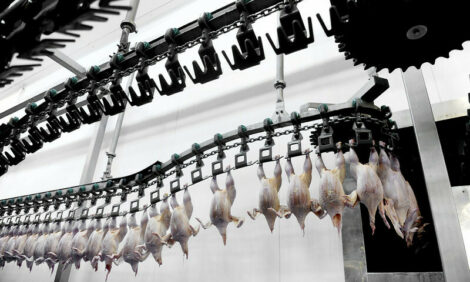



OFC: Changes to Common Agricultural Policy to Reduce Red Tape
UK - The UK has called for a rethink on the three crop rule, which is part of the greening arrangement within the recent reforms of the Common Agricultural Policy. Chris Harris reports from the Oxford Farming Conference (OFC).The move is part of the British government’s bid to reduce the burden of red tape and regulation on the farming sector.
Speaking to the Oxford Farming Conference, agriculture secretary, Liz Truss [pictured above] said that more decisions need to be taken in Britain for the benefit of British producers.
“As soon as the new European Commission started work, I went to see Commissioner Hogan to work to secure an urgent review of the three crop rule and simpler greening requirements,” she said.
“I want farmers growing what people want to buy, not what Europe tells them to.”
She added that she is also working to change regulations on the regulations covering pesticides and GM cultivation, which she said should be made on scientific evidence alone.
Mrs Truss said that 80 per cent of the rules in the UK covering environmental issues come from Europe.
And she said that some of the decisions that had been taken on issues such as genetically modified crops should be taken at a national level rather than at an EU level.
“GM crops have a role to play,” she said.
And she added that the benefits of certain crops could be seen in the US where crops were being grown that reduced the need for pesticides and also used less water.
Agriculture minister, George Eustice, added that there should be room for decisions to be taken on a national level working in a European framework.
However, the Scottish Rural Affairs Secretary, Richard Lochhead, said that a potential EU referendum was one of the biggest threats to British farming.
He said that leaving the EU would cost the farming community nearly £20 billion in support from the CAP.
“If we are taken out of Europe against our will, we will be taken out of CAP against our will, yet the CAP is a protective shield for agriculture and food in Scotland.
He called for a fairer share of the proceeds of the CAP and called for a simpler system.
“The CAP must be simpler, fairer and more streamlined with food production at its core,” Mr Lochhead said.
“Changing the budget allocations in future must be a priority.
“While Scotland is struggling to make ends meet with the lowest per-hectare rates in Europe, other member states have been given so much rural development funding they don’t know what to do with it.
“This needs to be addressed at UK and EU level,” added Mr Lochhead.






